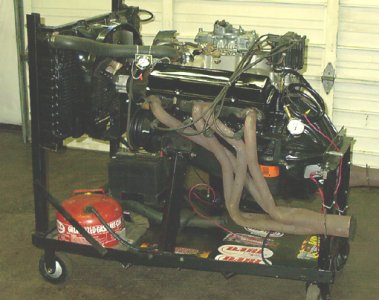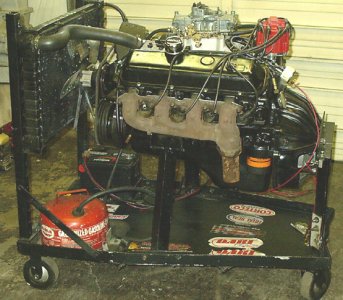Was gonna stick this post in "Off Topic" but after thinking.....I think this is on topic for "Tips and Tricks" since tools for serious guitar work are a must.
Its time for another set of dial calipers, and I'm in full research mode......
What I'd love to get, is an older, but non-beat-up set of Mitutoyo 6" .01 rev carbide jaw calipers. The old ones were fixable if they somehow jumped a tooth. The new ones are not - except maybe a trip back to importer, at a cost to repair that is 80 percent of what a new set cost.
Ok, the rundown.....
Starrett's model 120x-6. Has the features, carbide OD and .01 dial. Thumbwheel, which I prefer. Price $230. Some online folks are saying the newer Starrett is crap, soft metal, easily warped, not like the old. Assembled in USA, parts made God knows where. If these were jam-up well made and hardened calipers, I'd spring for them no questions asked.
Mitutoyo 505-708 - same features as the Starrett, but not Mitutoyo is "made in Brazil", and the rack, while covered, can not be used to realign the needle, like the old ones could. I've jumped tooth on one set of old ones... and the little key they give you works great to set it right again. Does have the thumb roller, which I like. New model has a cheezo plastic housing, and also has Titanium Nitride on the sliding parts. Cost $125
They also have a 505-712 with has carbide inner and outer jaws. I've got the older model right here, and I've had to regrind the ID jaws because the very thin carbide on those has shattered twice on me. I'm into the thicker material now, so they'll hold up - but - a good friend is getting them as a gift.... or maybe not.
Thats it for carbide.
Now for non-carbide, as plan B
Brown and Sharpe caliper, non carbide but made in Switzerland. Supposedly a first rate unit, price about $120, but no thumb roller.
Etalon caliper, same as Brown and Sharpe, but with thumb roller. Both the E and B/S models are supposed to have very hard stainless that holds up well, metal housings, metal bezels with crystal lenses (not plastic).
Mitutoyo plain jane model 505, with TiN coating, .01 dial etc, thumb roller and plastic housing, but cheap at $85
Mitotoyo "solar" caliper, no moving parts (except slider), no battery. TiN coated, and cost about $165 This unit works in VERY dim light, like "dim, garage level" lighting of 60lux
Starrett 120a-6, plain jane version of the 120x-6, no carbide and gets good reviews by amateurs, but the repair shops say - Danger Will Robinson, Danger!
Everything else is Chinese or worse (Pakistan) made. Those $30 specials... even some more mid priced ($60-100) units are foreign made, and not worth my money, since I buy precision measuring tools for their precision.....
So.... I'm in a state of confusion here. DangerousR6.... looking for guidance bro!
Its time for another set of dial calipers, and I'm in full research mode......
What I'd love to get, is an older, but non-beat-up set of Mitutoyo 6" .01 rev carbide jaw calipers. The old ones were fixable if they somehow jumped a tooth. The new ones are not - except maybe a trip back to importer, at a cost to repair that is 80 percent of what a new set cost.
Ok, the rundown.....
Starrett's model 120x-6. Has the features, carbide OD and .01 dial. Thumbwheel, which I prefer. Price $230. Some online folks are saying the newer Starrett is crap, soft metal, easily warped, not like the old. Assembled in USA, parts made God knows where. If these were jam-up well made and hardened calipers, I'd spring for them no questions asked.
Mitutoyo 505-708 - same features as the Starrett, but not Mitutoyo is "made in Brazil", and the rack, while covered, can not be used to realign the needle, like the old ones could. I've jumped tooth on one set of old ones... and the little key they give you works great to set it right again. Does have the thumb roller, which I like. New model has a cheezo plastic housing, and also has Titanium Nitride on the sliding parts. Cost $125
They also have a 505-712 with has carbide inner and outer jaws. I've got the older model right here, and I've had to regrind the ID jaws because the very thin carbide on those has shattered twice on me. I'm into the thicker material now, so they'll hold up - but - a good friend is getting them as a gift.... or maybe not.
Thats it for carbide.
Now for non-carbide, as plan B
Brown and Sharpe caliper, non carbide but made in Switzerland. Supposedly a first rate unit, price about $120, but no thumb roller.
Etalon caliper, same as Brown and Sharpe, but with thumb roller. Both the E and B/S models are supposed to have very hard stainless that holds up well, metal housings, metal bezels with crystal lenses (not plastic).
Mitutoyo plain jane model 505, with TiN coating, .01 dial etc, thumb roller and plastic housing, but cheap at $85
Mitotoyo "solar" caliper, no moving parts (except slider), no battery. TiN coated, and cost about $165 This unit works in VERY dim light, like "dim, garage level" lighting of 60lux
Starrett 120a-6, plain jane version of the 120x-6, no carbide and gets good reviews by amateurs, but the repair shops say - Danger Will Robinson, Danger!
Everything else is Chinese or worse (Pakistan) made. Those $30 specials... even some more mid priced ($60-100) units are foreign made, and not worth my money, since I buy precision measuring tools for their precision.....
So.... I'm in a state of confusion here. DangerousR6.... looking for guidance bro!





